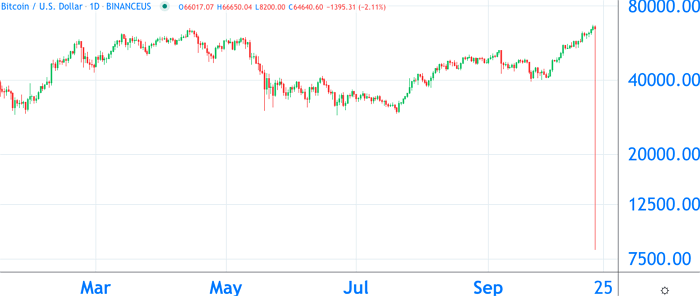Weekly Market Review & Analysis For October 18, 2021

Stock market performance was boosted by negative supply-chain commentary. Investors bid up value and growth stocks of missing out on lucrative future gains. S&P 500 index with +1.6% and Dow Jones Industrial Average with +1.1% set intraday and close record highs.
The small-cap Russell 2000 with +1.1% and Nasdaq Composite with +1.3% saw gains of over 1.0%. Stocks must continue to have a silver lining: corporate profits.
While most companies beat EPS estimates, it was cited as a source for fueling value stocks. Not surprisingly, though shares of companies with supply chain problems suffered, the broader stock market ignored them.
Procter & Gamble, Intel, Honeywell, and Snap were among the companies that mentioned supply chain/pricing problems -- at least for its ad partners. SNAP also attributed Apple's privacy changes to its disappointing results and guidance.
Next week will provide a better understanding of how corporations fared. More than 70 S&P 500 companies reported next week, ranging in size from Netflix to Johnson & Johnson and Proctor & Gamble. Markets will focus on how profit margins have reacted to supply chain problems and cost pressures.
The stock market buy-the-dip (BTD) mantra, which began earlier in the month, continued this week. Ten of the eleven S&P 500 sectors closed higher, led by real estate with +3.2% and health care with +2.9%. The financials sector with +2.8% and utilities with +2.4% had gains above 2.0%.
The only sector to finish the week lower was the communication services sector posting -0.6%, primarily due to Snap's disappointing news on Friday that negatively impacted Facebook and Alphabet.
The U.S. Treasury market saw maturities across the entire curve sell-off as investors expected the Fed to raise rates sooner than anticipated due to persistent inflation pressures. This was further reflected in higher crude oil prices gaining +1.51, or +3.8%, closing at $83.77/bbl.
The Two-year yield rose seven basis points to close at 0.47%, and the Ten-year yield climbed eight basis points to finish at 1.66%. The U.S. Dollar Index dropped 0.3% to close the week at 93.62.
Overseas market
The solid corporate earnings of U.S. companies and an unexpected increase in U.S. retail sales saw global equity markets post their best week in months. Although gains were broad-based, stabilizing bond yields helped growth stock outperform value for the first time in more than a month.
China declared that the Evergrande situation could be controlled and won't spread despite another unexpected default by its largest property developers. The market news continued to show that the Chinese junk bond yields rose, reaching a record high of 20% after ten years.
The major European markets moved in favor of the day, with all the major ones. The French CAC 40 Index rose 0.7% while the German DAX Index climbed 0.5%, and the FTSE 100 Index in the United Kingdom edged up 0.2%.
The commodity market
The worldwide energy market crisis continues to cause havoc in the global economy and skyrocketing commodity prices. Base metal prices saw a rally this week. The London Metal Exchange Index, which tracks copper, aluminum, and lead and has low inventories, high demand, and production problems, reached a new ATH. It took over ten years for the index to reach its 2011 peak. The index is currently up 40% annually.
China is scrambling to get more coal. Numerous major Chinese energy companies are close to signing long-term agreements with U.S. liquefied gas exporters. Power-generation companies have switched to oil due to skyrocketing natural gas and coal prices.
Silver and gold gained ground due to lingering concerns over China's property sector bonds and emerging global stagflation. It's been an excellent week for precious metals. Gold closed at $1,792, up $26 or 1.5% for the week. Silver closed at $24.30 with a gain of $1.04 or 4.5%.
Bitcoin
Bitcoin market moves fast, and you can't take your eye off the price action; this week, bitcoin reached a new all-time high, but also flash crashed. Below is the daily chart of the bitcoin in dollars. It shows the Thursday price on the Binance exchange, the price was heading for a new all-time high, but suddenly it dropped to $8,200.

This week the American Securities and Exchange Commission (SEC) approved two Exchange Traded Funds; everybody can now invest in bitcoin, even accredited institutional investors. On Monday, another ETF will be available, so expect even more excitement on the markets.
This market flash crash made some sellers mad and a lot of bargain hunters happy. Usually, a flash crash isn't the result of a regular game between demand and supply. It's the result of something else. Binance explained there was a bug in one of their algorithms. Several years ago, this happened frequently - nowadays, a flash crash is an anomaly.